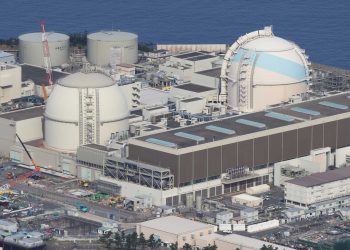,
BEIJING (Reuters): Negotiators trying to persuade North Korea to give up its nuclear weapons held out little hope for a deal on Friday, the final day of week-long talks that have made scant progress.
Envoys said they wanted to focus on a September 2005 agreement that offered the North aid and security guarantees in return for disarmament, but Pyongyang remained preoccupied with getting U.S. financial curbs against it lifted.
“Our goal is denuclearisation. Period,” chief U.S. envoy Christopher Hill told reporters on Friday, the fifth day of this round of talks. “They need to show some seriousness of purpose on denuclearisation.”
The talks, which group the two Koreas, the United States, China, Japan and Russia, are taking place in the shadow of the North's first nuclear test on October 9.
They are also the first negotiations in more than a year. North Korea pulled out in anger over a freeze on its accounts at Macau's Banco Delta Asia, which the U.S. said was complicit in Pyongyang's money-laundering and counterfeiting of its currency.
North Korea said the financial curbs — announced shortly after the breakthrough September 2005 deal — showed Washington had negotiated in bad faith.
But Hill questioned just how seriously North Korea wanted to talk about disarmament, saying the financial dispute was a pretext to avoid the real issue at hand.
“One day it's financial issues, another day it's something they want but know they can't have, another day it was something that was said that hurt their feelings. It's one thing after the other,” he said.
Fundamental disagreements remained.
“Whether there will be any meaningful accomplishment at this round of the talks depends on what position North Korea is going to bring,” South Korean envoy Chun Yung-woo told reporters.
NO PROGRESS
Hill said he would head home on Saturday, agreement or not, but was unsure about if or when talks could resume.
“The purpose is denuclearisation, so we'll have to evaluate this round in terms of whether we've moved towards that goal.”
“It all comes down to the question of are they serious, are they acting responsibly? And I think that question is very much unanswered,” he said.
Failure to make progress would call into question the multilateral negotiations, Japan's chief envoy said.
“I think various opinions will emerge on the credibility of the six-party talks,” Kenichiro Sasae told reporters.
Earlier in the week, Hill had hinted at progress on a deal on concrete steps North Korea would take towards scrapping its nuclear arsenal, which would probably include allowing back international inspectors Pyongyang expelled in 2002.
But envoys say the North has since refused to talk about anything but financial curbs.
In Washington, U.S. Secretary of State Condoleezza Rice echoed the U.S. view that the financial issues and the nuclear talks should be kept apart, and said the North Koreans had themselves asked for a separate working group on the matter.
The U.S. met that demand with a separate Treasury delegation that held talks with North Korean officials in Beijing for two days this week. They reached no agreement, but are expected to continue in New York in January.
Japan's Sasae urged North Korea to realise the importance of the six-party talks. “The situation will become more severe for them if they waste the opportunity,” he said.
(Additional reporting by Jack Kim, Lindsay Beck and Ben Blanchard in Beijing and Arshad Mohammed in Washington)









